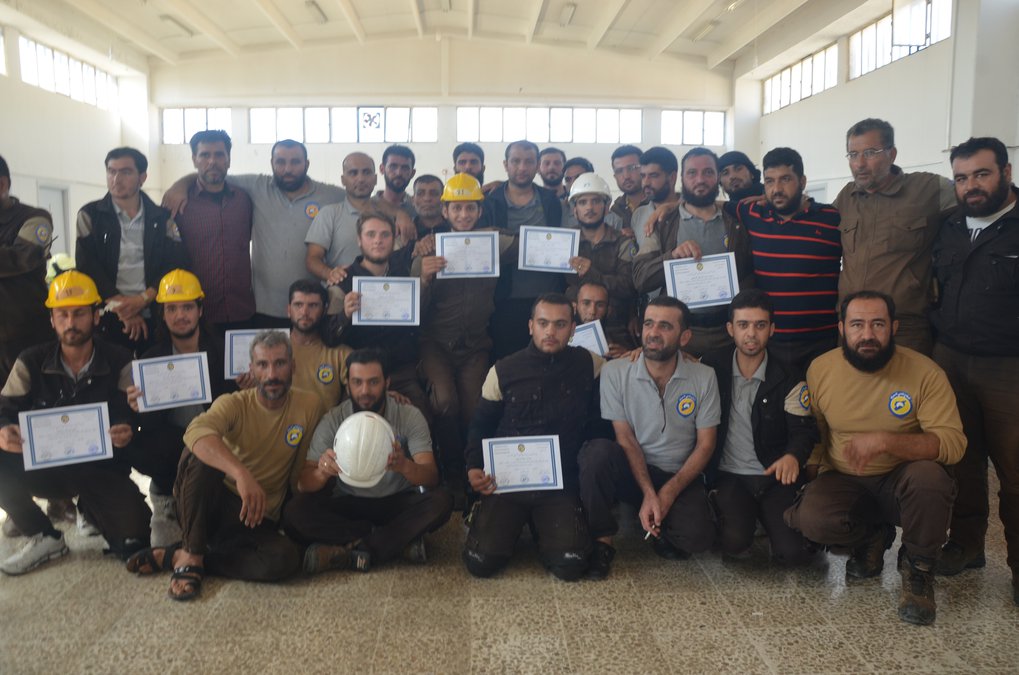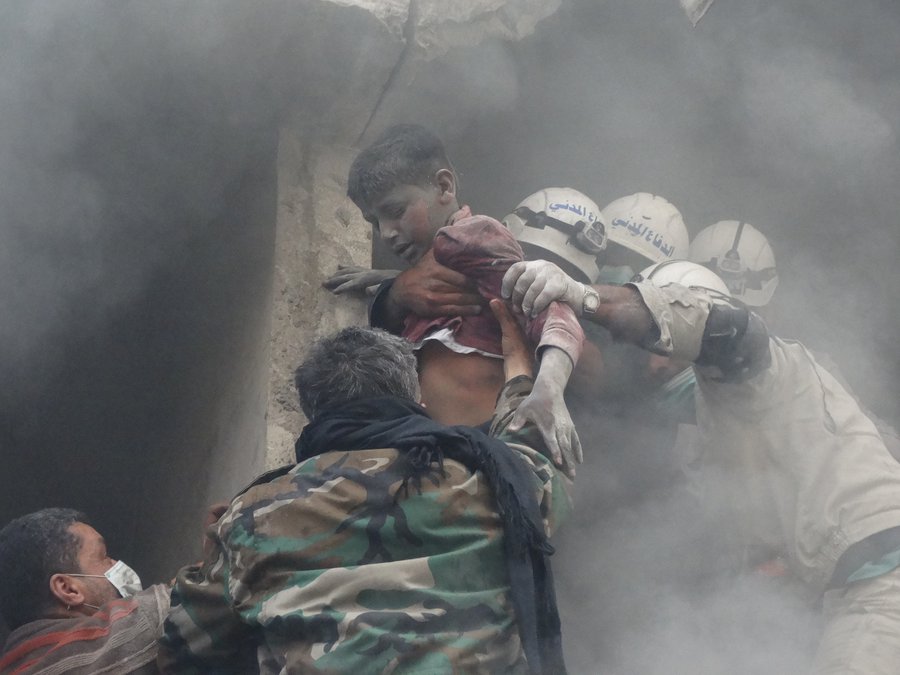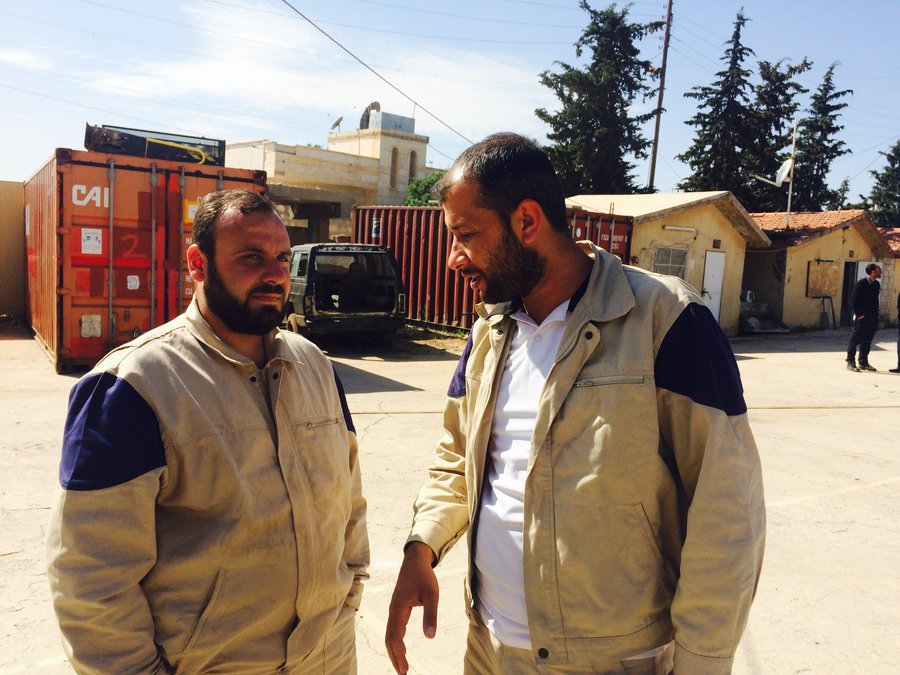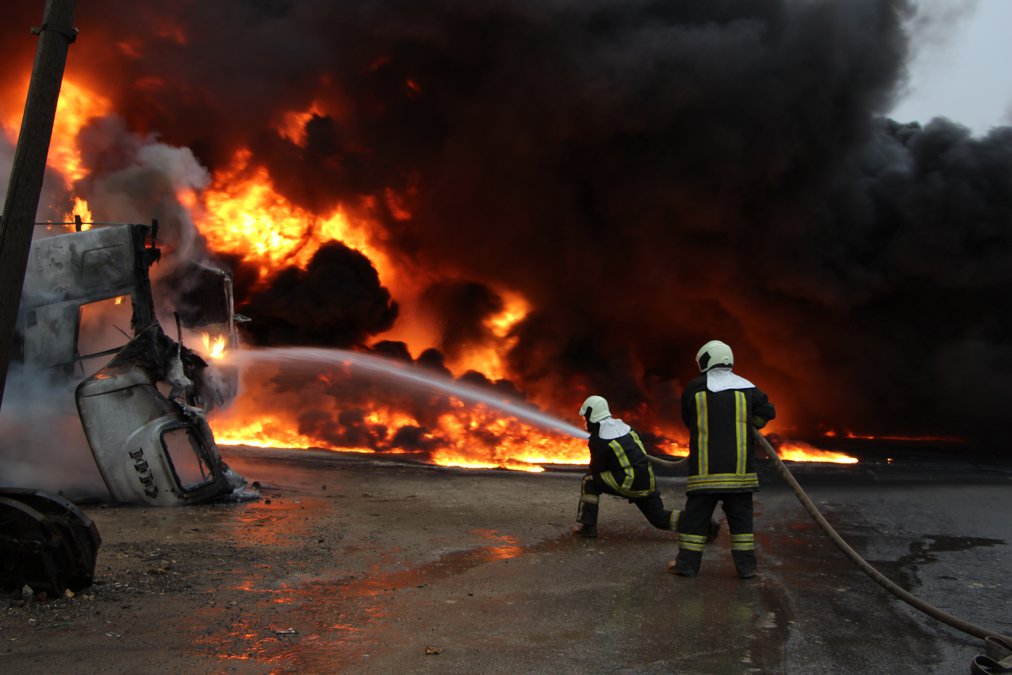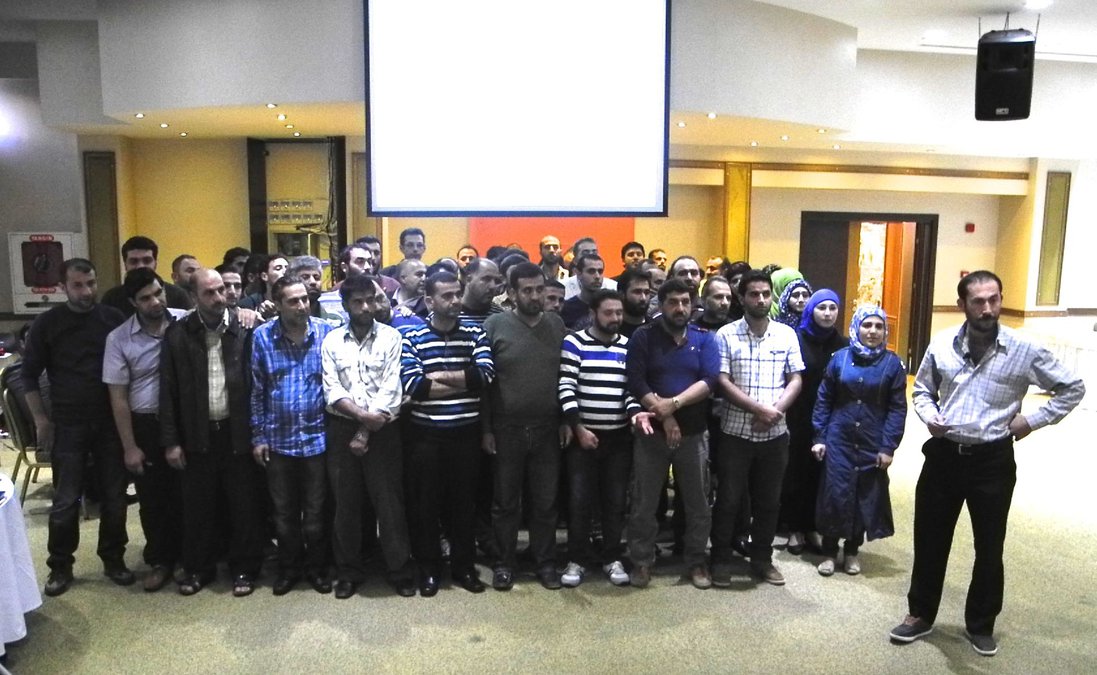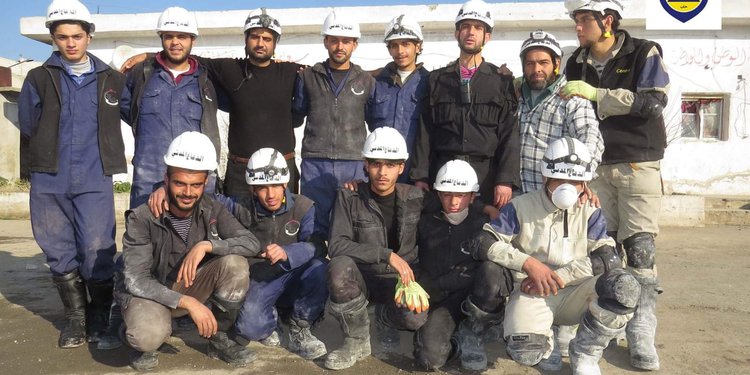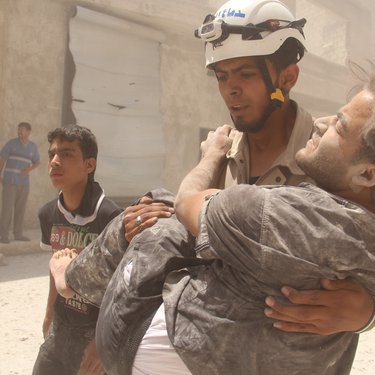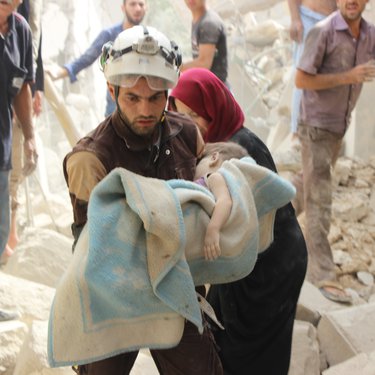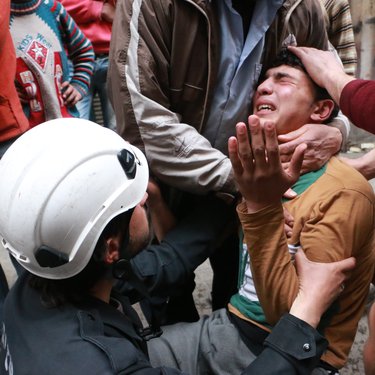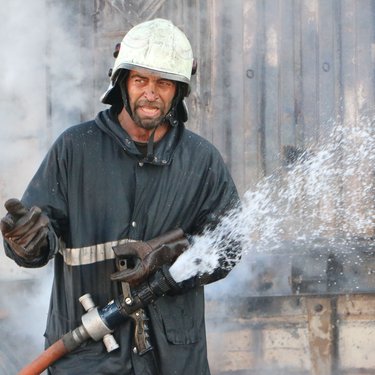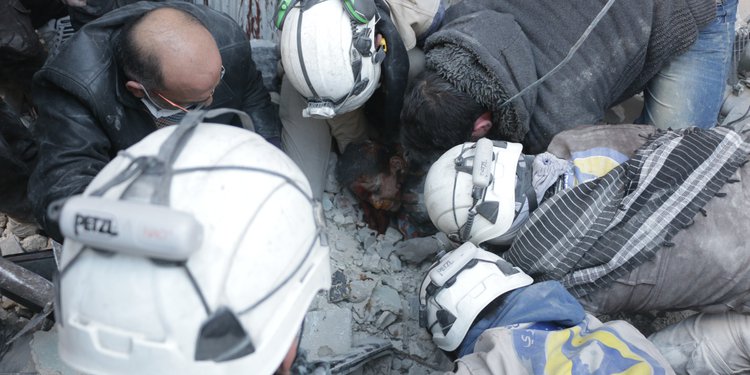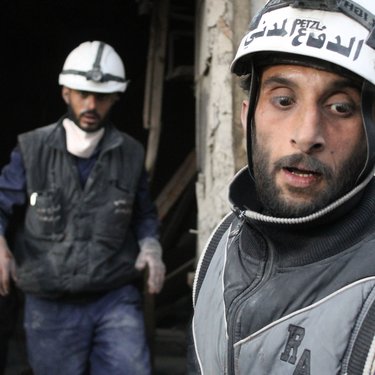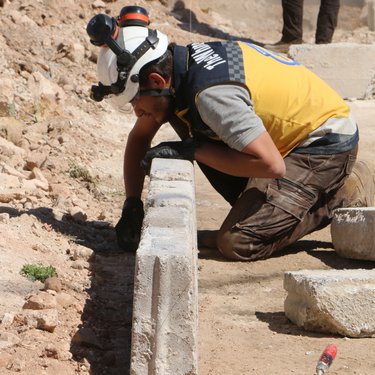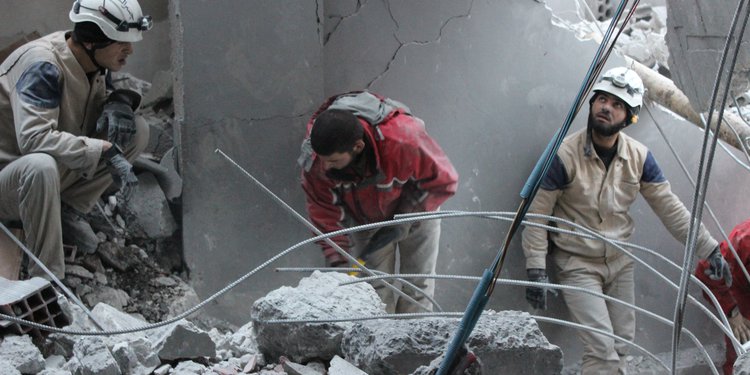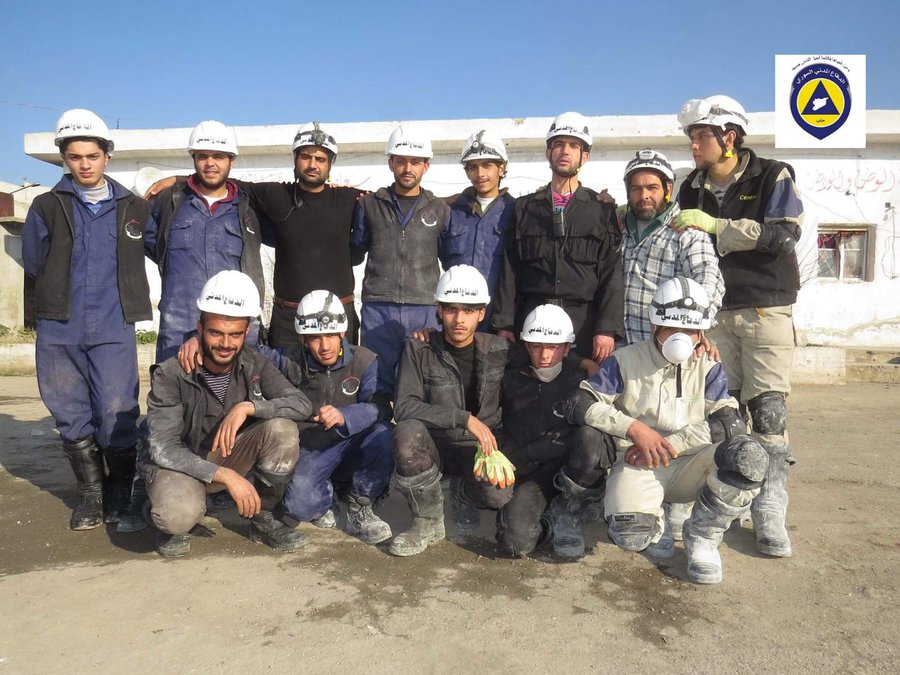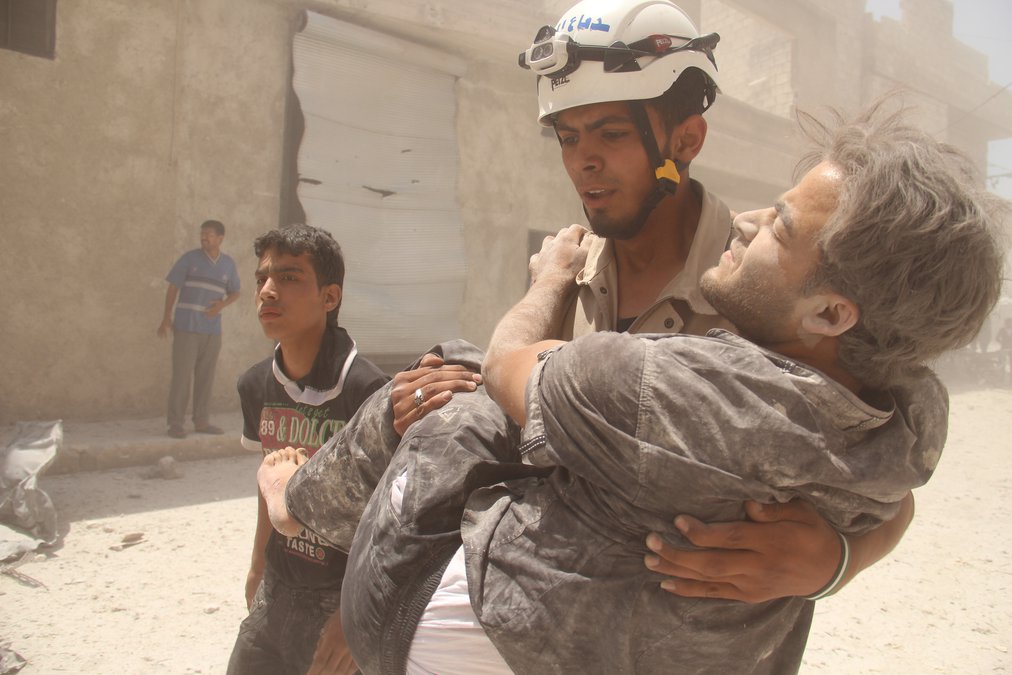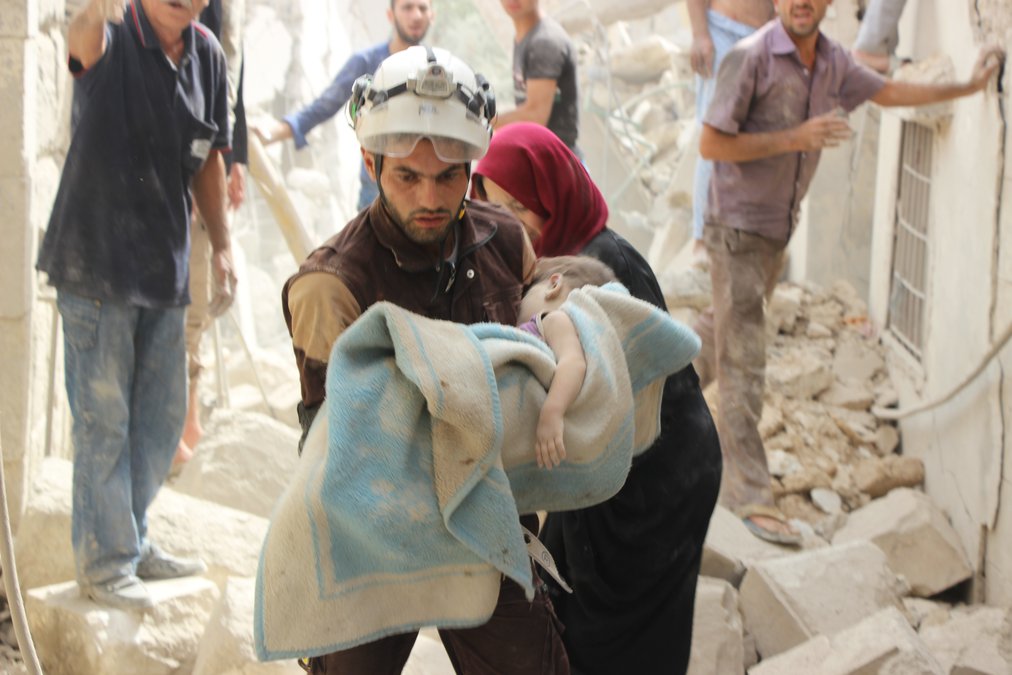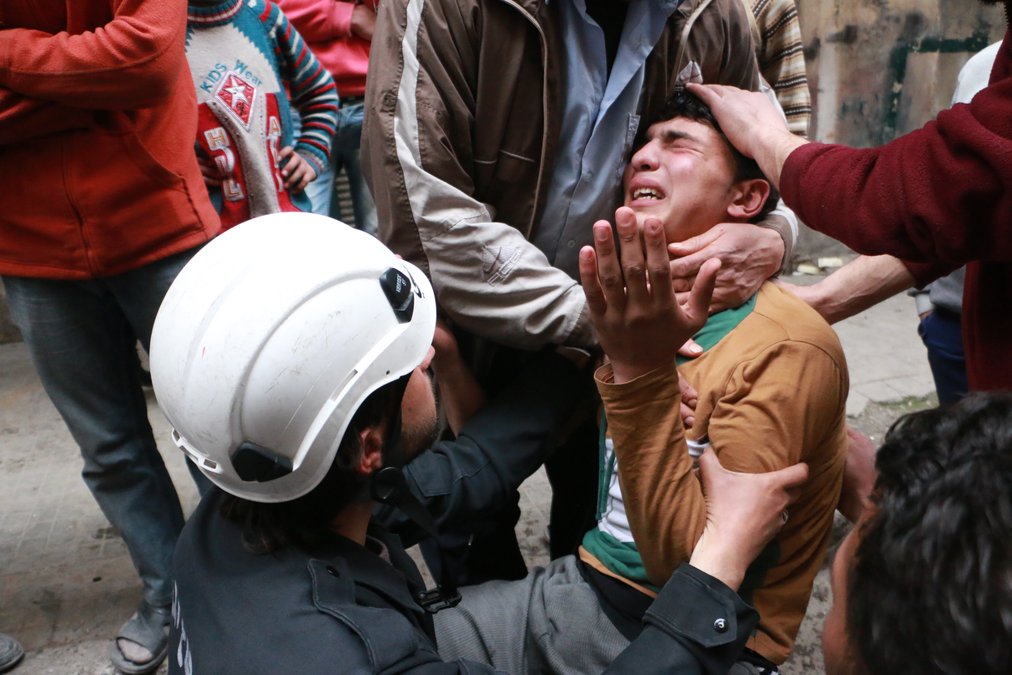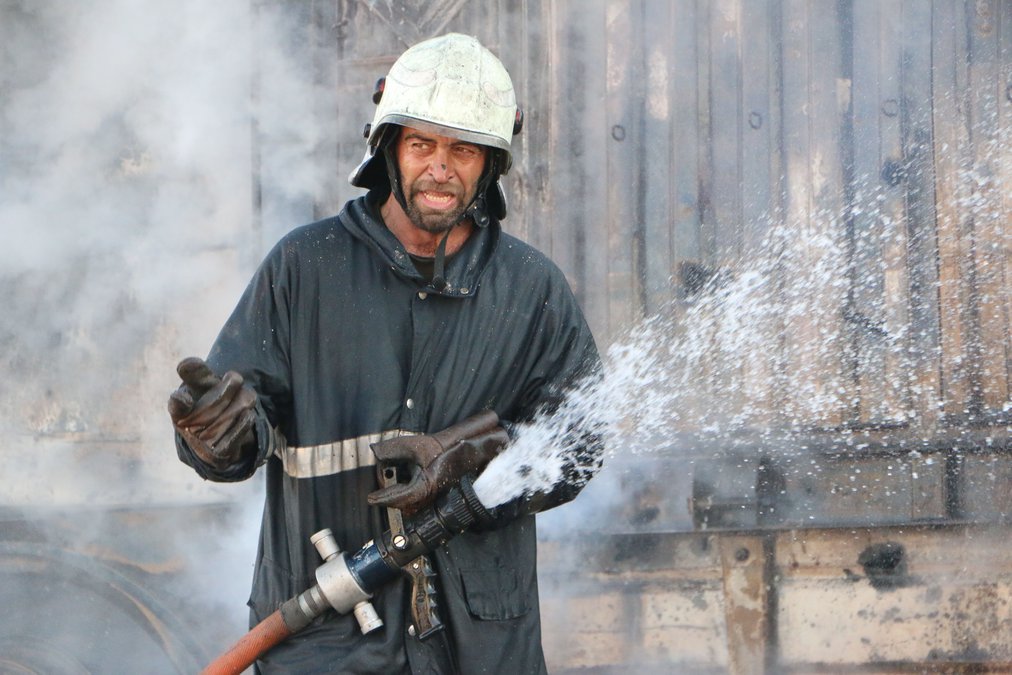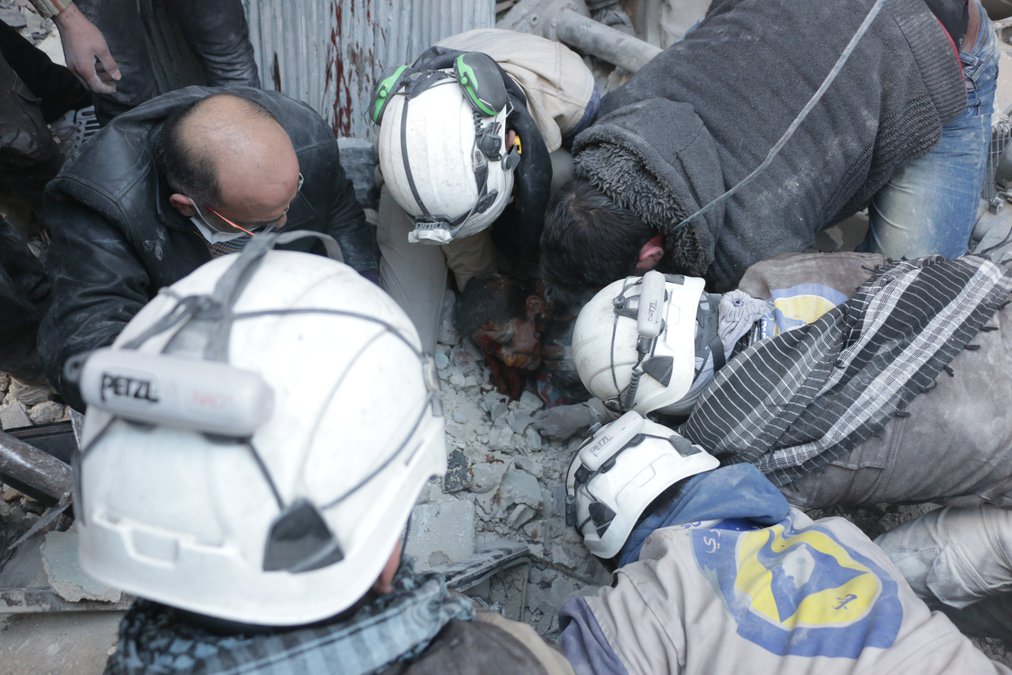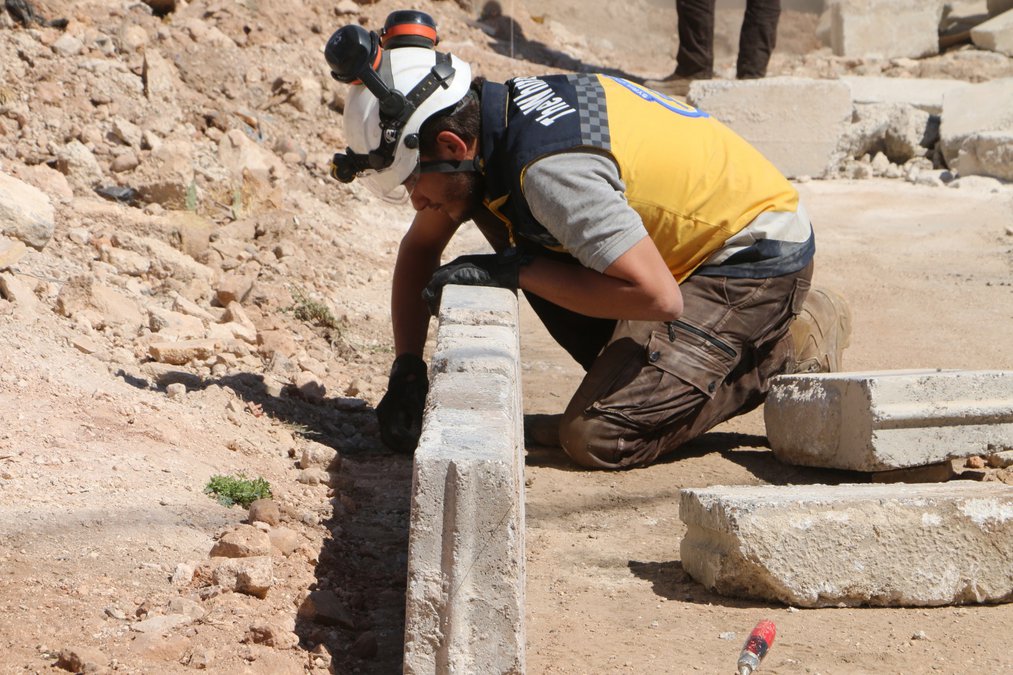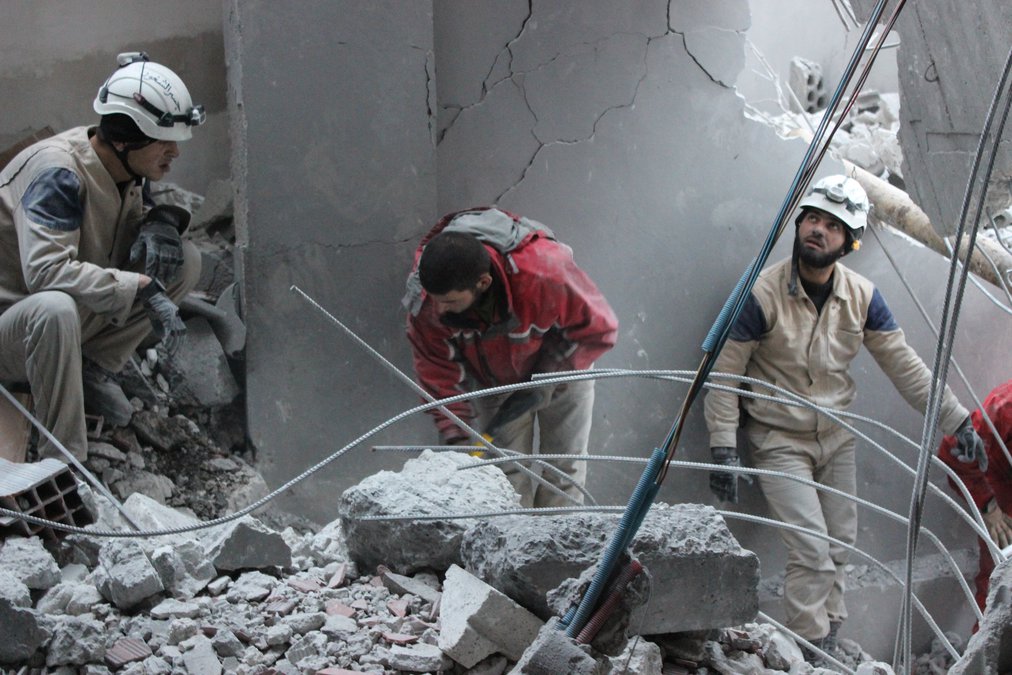From our earliest days as self-organised volunteer teams we have been from and for the Syrian people.
In late 2012 the Syrian regime began using aerial attacks as a form of collective punishment on neighbourhoods no longer under its control.
These aerial attacks were paired with a withdrawal of state-provided services such as firefighting, emergency ambulance cover and the maintenance of water and electrical mains. It was a combination that would prove deadly for civilians as entire housing blocks were destroyed with no-one to come to the rescue of the residents. The White Helmets formed as a response to this need.
We didn’t start as one unified organisation but instead our roots lie in dozens of volunteer initiatives in neighbourhoods across the country. Hundreds of individual volunteers started coming together, doing what they could to help their communities in response to the bombings and other emergencies.
The stories of some of founders help to explain how we came together.
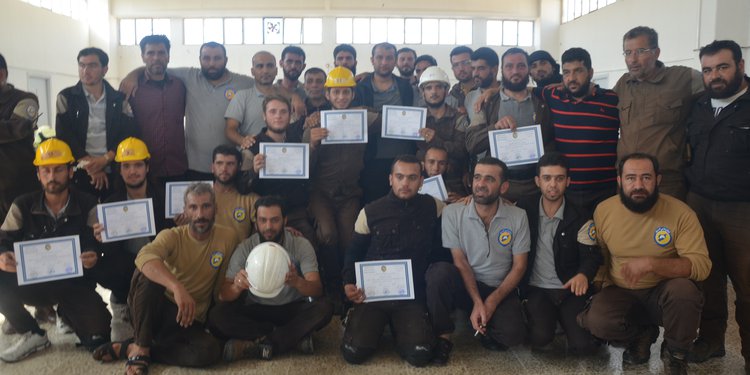
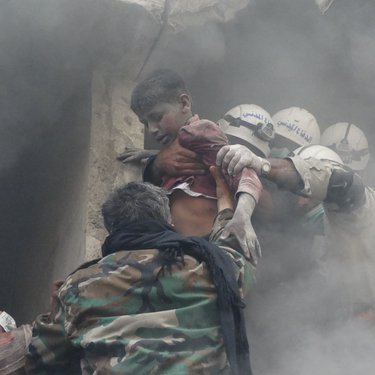
The rescue team help evacuate a boy from a residential building after it was hit by an explosives-filled barrel dropped by a government forces helicopter in Aleppo, Syria
Mounir, Aleppo
Mounir is a firefighter from Aleppo. In 2012, the leadership of the Aleppo city fire service ordered Mounir and his team not to respond to a fire in a Kurdish district outside of the control of the regime. Because their commitment to serving the people, Mounir and his team defied their leadership and went and extinguished the fire.
It was a turning point for Mounir and the others on his team. They knew that by rejecting the orders of their superiors they would be seen as enemies of the regime, and their lives would be at risk. That same day they defected and set up an independent emergency response centre to serve all Syrians. While they had little equipment, their experience and skills enabled them to start responding to attacks and save the lives of those trapped under the rubble. This was how one of the first civil defence centres in Aleppo started.
Raed, Jisr Al Shughour
A few hundred miles away in Idlib, Raed had been a salesman. In 2011 he was forced to flee Syria and dedicated his time to humanitarian relief efforts on the Turkish border. He gradually started working again inside Syria, where he helped resettle internally displaced people and transport injured civilians for medical treatment in Turkey. Through this work he heard of training offered in civil defence and attended one of the first courses provided in Turkey in 2013.
At the training the search and rescue experts showed Raed the difference this work could make to civilians trapped in the now daily airstrikes. Realising its importance Raed used his contacts and experience to establish civil defence centres across Idlib. The first centre was in Yakubiyeh in the Jisr Al Shughur countryside; next came centres in Binnish and Ma’aret Al Numan. Working with local councils, civil defence centres were established across the entire Idlib province.
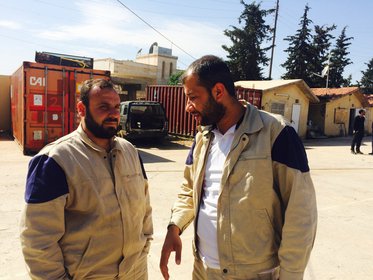
Aleppo, 2015
Mounir Moustafa and Raed al Saleh
Ammar, Al Safera
Ammar was an English teacher from Al Safera, a town of 100,000 people to the east of Aleppo City. The regime’s response to the liberation of Al Safera in 2012 was brutal -- cutting off all services leaving the residents living in literal darkness without even electricity. Its armed militias started kidnapping people, many of them were drowned in the town’s wells.
Ammar initially joined an armed group with other locals to defend their community. However, after seeing many killed and others suffering with no medical care he decided to save lives, not take them. He was elected as the Head of the newly formed Local Council that provided essential services like electricity and water, emergency medical aid, and retrieving martyrs to give them a proper burial.
In 2014 Al Safera fell to the regime and Ammar was forced to flee to the old city of Aleppo were he established the first Civil Defence in Bab Al Nera. Local residents signed up to join and they started work providing rescue services, supplies to the population and firefighting. In February 2014 they received the first professional vehicles and tools to help with their work.
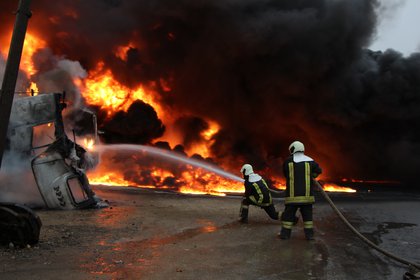
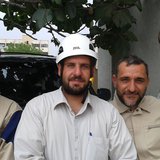
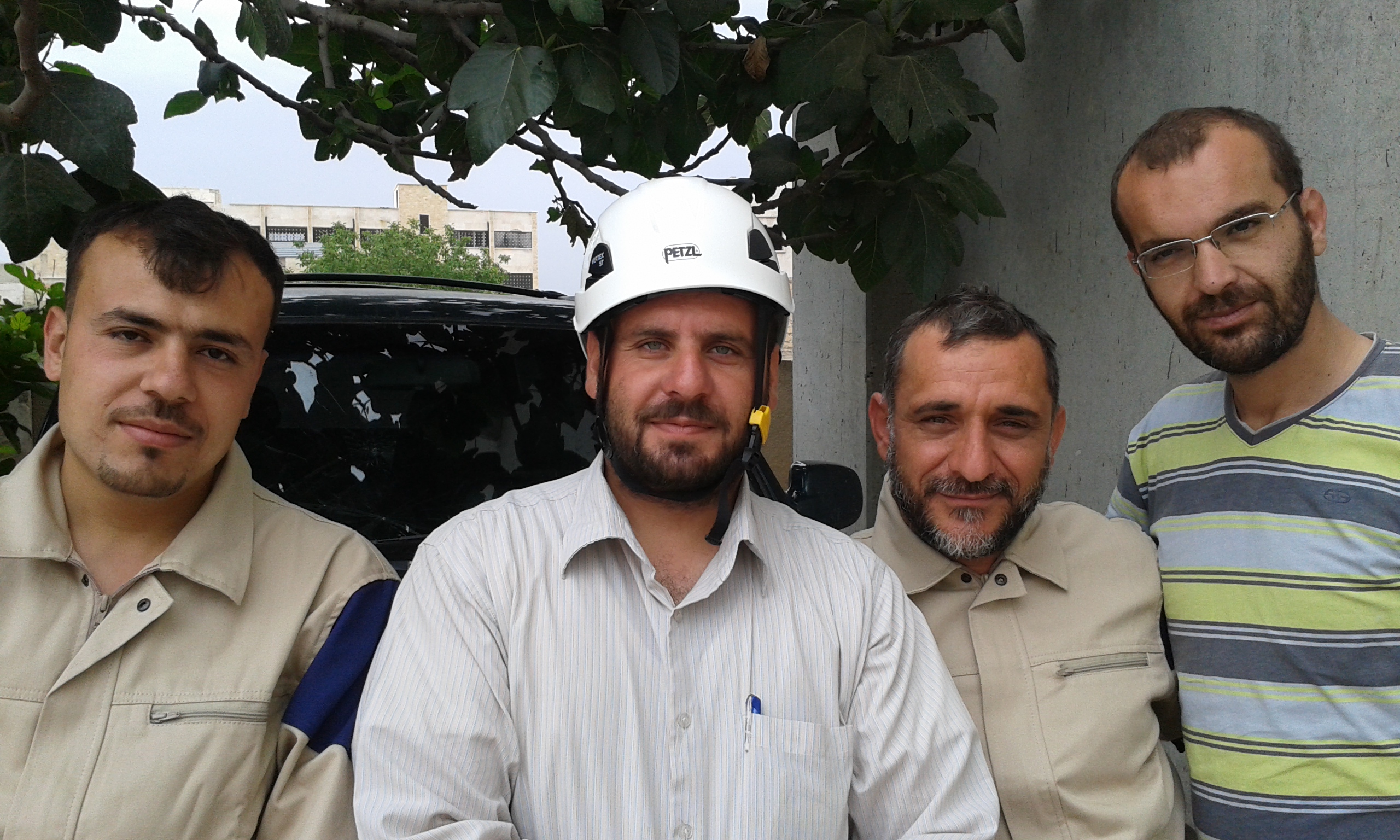
In times of war many existing institutions collapse, so imagine how difficult it is to build one during times of war? The obstacles we faced were very large. Until now, we're working on developing and reforming the Syria Civil Defence.
Mounir Moustafa, Deputy Head
By 2013, many of our volunteer groups started to hear about each other. We were delighted to find others who were maybe 5 miles away, maybe 50 miles away, all uniting under a common purpose to save lives. We started organising in teams and increasing our coordination. Some teams also started to receive training in search and rescue techniques from experts in Turkey and Jordan and equipment from international donors.
In 2014 we began to discuss how we could unite these efforts in a more formal way, to become one organisation dedicated to saving Syrian lives. While we were organising ourselves to coordinate better, we were also becoming increasingly cut-off from each other’s areas due to shifting frontlines: teams in the north couldn’t reach those in Damascus, Rural Damascus, Homs, Daraa and Quneitra. The regime besiegement of areas made it impossible for us all to meet in Syria so we planned the first national meeting in southern Turkey for 25 October 2014. After two days of meeting we united formally in our vision to create a humanitarian institution that served all Syrians. We made it our mission to do this work as an independent, impartial organisation that pledged no allegiance to any side in the conflict. We agreed to run this organisation democratically with elected leadership. We signed a Charter of Principles and the Syria Civil Defence was created on 24th October 2014.
For many of us in the room that day was one of the best of our lives.
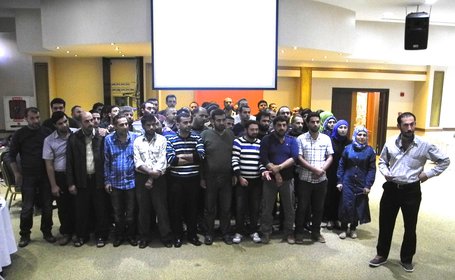
A look at our early days
This picture has been taken in Feb 2014 when those volunteers were responding to almost 30 in a day after the Syrian regime lunched a heavy campaign and hit the civilians areas by barrel bombs
Aleppo city
Idlib province
Aleppo city
Civil defense teams are involved in rehabilitation the main roads and sidewalks
Idleb-Jiser ASH-shoghor
Search and rescue teams digging out through rubble after airstrikes hit civilian houses in Jiser ASH-shoghor city- Idlib August 7, 2015

